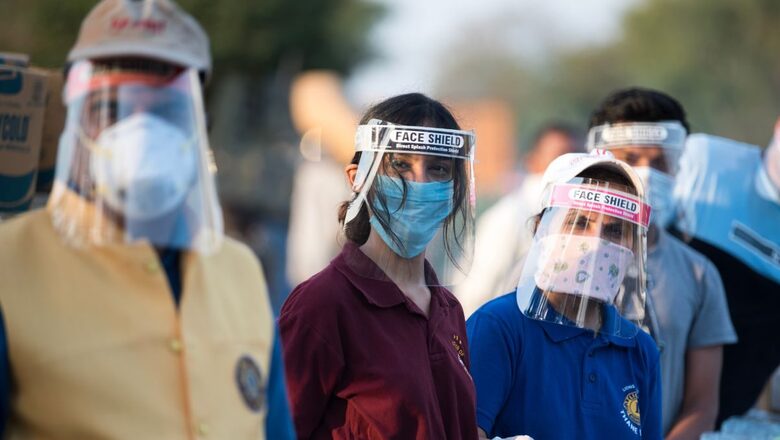
views
It’s time for the public to stop being surprised by the rise in Covid-19 cases and recognise coronavirus as a permanent part of their lifestyle, former Indian Council of Medical Research (ICMR) scientist Dr Raman Gangakhedkar has told News18.com.
The country’s top epidemiologist, who was the face of India’s apex medical research agency during government briefings on Covid-19 last year, said “surges will inevitably occur, but in the majority of cases, there is no need to panic”.
“Virus continues to live with us and it will continue to come up as a new variant after a gap of few months…As long as there is no increase in cases of hospitalisation and deaths, there is no reason to ring an alarm.”
He advised that “elderly or people with prevailing health conditions must understand by now that they need to upgrade their protection strategy once cases start going up as a part of their lifestyle”.
On Thursday, India reported 594 new Covid-19 infections, with the number of active cases rising to 2,669 from the previous day’s 2,311, as per the Union Health Ministry.
Variant gives no reason to panic
According to Gangakhedkar, in the US, the JN.1 variant has infected 31 per cent of the total cases, which means almost one in every three individuals.
The variant was first detected in September in the United States and has been spotted in around 40 countries across the globe, by now. “The world had sufficient time to study the virus and by now, we know that the virus hasn’t caused higher deaths in the US.”
The people who fall under the vulnerable or at-risk group should learn to take care of themselves and immediately start following Covid-19-appropriate behaviour, he advised.
“Wearing a mask and social distancing won’t just save you from Covid-19 but also from several other respiratory infections circulating during this weather and pollution.”
Govt must heighten hospital surveillance
On being asked if the Union government should increase the samples for genomic surveillance, Gangakhedkar said “investing in smart genomic surveillance will optimize yields”.
“The right way forward is to increase the hospitalisation and death rate surveillance across the country among Covid19 cases.”
He added: “It is a less costly and more effective way. The results of the surveillance would indicate the geographies with increased hospitalisations. These are the areas from where samples for genomic sequencing can be sent to understand the variants,” said Gangakhedkar, who has led many assignments on behalf of ICMR, including containing the Nipah outbreak in Kerala.
Gangakhedkar said new strains will continue to emerge as humans have pushed the virus to its limits. However, he emphasised that, in his understanding, there is currently no significant threat.
“The way the virus is mutating, it looks like it is going mild to milder post-Delta wave. JN.1 is no different. The difference in its spike protein has probably made it more transmissible and hence, the vulnerable need to gear up. We have to accept this surge and adapt our lifestyle to it.”




















Comments
0 comment